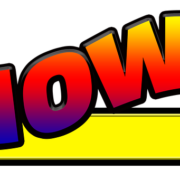‘How Do I Become A Freelance Copywriter?’
Table of Contents
Ever wondered about changing career to become a freelance copywriter? That’s what Caro, a teacher, has been considering. She emailed me recently for advice.
And this is what she said:
My name is Caro and I’m currently working as a teacher. However, I’m very interested in making a career change to freelance copywriting. I hope you don’t mind me emailing you, but I found your blog very useful (especially the information on an area I’m not very well-versed in: financial management!) I do have some additional questions about freelance copywriting that I wondered if you’d mind answering?
As I started freelance copywriting about 18 years ago, I thought a different perspective would be handy so invited Tristan Cardwell, who’s notched up four years as a freelance copywriter and two in an ad agency, to collaborate on this blog. Here’s how we answered Caro’s questions…
Q. Do you think a copywriter needs to have some experience of working in an agency before going the freelance route? (I have no previous experience in advertising).
TC: I don’t think agency experience is a pre-requisite when it comes to working as a freelance copywriter. It is my impression that there was a time when the only route into freelance copywriting was to complete a copywriting / art direction course and work in an ad agency for several years, before going freelance. I don’t think this is the case today.
 When I left university and worked in ad agency, we employed freelance writers to work on big ad campaigns, these copywriters spent most of their time working for our agency, although still on a freelance basis. It seems to me that the work of a freelance copywriter is more diverse than it used to be and there are now many different routes into the profession. As an e
When I left university and worked in ad agency, we employed freelance writers to work on big ad campaigns, these copywriters spent most of their time working for our agency, although still on a freelance basis. It seems to me that the work of a freelance copywriter is more diverse than it used to be and there are now many different routes into the profession. As an e
xample, rather than only working on big campaigns, freelancers might now work on jobs for smaller clients, SMEs and start-ups. This partly reflects changes that have taken place within the advertising industry, including smaller budgets and a shift away from big copy-heavy TV campaigns, in favour of more integrated campaigns which are designed to work across multiple mediums.
That said, I do think that there are several benefits to having agency experience. While working in an agency, I learned the importance of good client servicing skills and the ability to manage client expectations. I also gained an understanding of the creative process – taking a brief and distilling it into one or two central creative ideas or propositions, then working this idea into an ad campaign. I also developed an understanding of the importance of branding.
CG: I’m from the era that Tristan refers to i.e., I did a six month post-grad course at Watford College after uni (toyed between being a copywriter or account handler) then teamed up with various art directors on D&AD courses to build a portfolio and then nailed a job in an ad agency.
There are so many more copywriting courses and opportunities these days. But, surely, you need to prove what you can do? And the only way to do so is by having a portfolio – whether it’s real work or spec work. Ideally, both if you’re starting out.
Clients often come to me because I’ve got experience in retail/finance/property etc, etc. It’s a comfort zone for them. If currently a teacher, maybe consider carving a niche in the education sector and contacting e-learning clients or working with agencies that specialise in websites for schools?
I do think having agency experience is valuable because you learn about how everything else works and connects before you get the brief and then what happens afterwards. Otherwise, how can you understand when to push back on a brief because the proposition isn’t single minded enough? Or know the process behind making a radio ad? Or sense that what you’ve written is OK, but could be a zillion times better when pushed by your creative director?
With digital continually blooming, there’s now a bunch of roles out there requiring copywriting that you could explore (especially if you’re already blogging and know enough about SEO) such as Marketing Storyteller, Social Media Content Creator, Content Marketer.
Q. What are the highlights and lowlights of working as a freelance copywriter?
 TC: I would say that the lowlights are those that come with running any small business or working as a freelancer in any profession. These include the uncertainty of not having a fixed income or guaranteed work; managing client expectations; managing cash flow and not having the support of a team around you.
TC: I would say that the lowlights are those that come with running any small business or working as a freelancer in any profession. These include the uncertainty of not having a fixed income or guaranteed work; managing client expectations; managing cash flow and not having the support of a team around you.
There are also a different set of challenges to overcome when you first start freelancing, as you go through a learning process and make the inevitable mistakes that are part of starting any business.
On the other hand, there are many highlights, these include: getting to do something you enjoy; being your own boss; getting paid to write and having the freedom to be creative. I also enjoy the satisfaction of exceeding client expectations; meeting new people and learning about new subjects.
CG: I went freelance after I’d been made redundant four times. I’ve never looked back since. It’s hard to stop thinking “Have I made as much this month as I used to when working full time?” It’s hard to remember to keep a percentage of your earnings aside for when the tax bill hits you. It’s hard not to panic when you haven’t worked for a month and know it will be another 30+ days from finishing a new project before you get any £££. It’s also hard when you get several enquiries all at once and think ‘Yikes! What should I do?’
But anything in life that’s new is hard! You have to be organised and efficient; use any breathing space to do your own marketing/write blogs/chill; ask for invoices to be paid in stages (in other words, get some money upfront), and say ‘yes’ to everything (because it’s very rare to get several projects all starting at once or with the same deadline).
Freelance has suited me because I have two children and a husband (phew, I’m not the sole provider). However, having spent time optimising my site, I never have much breathing space anymore and often work weekends and evenings. Thankfully, my children are no longer really children.
Q. What would you have liked to know before you started off as a freelance copywriter?
TC: I would like to have known how important it is to take the time to properly understand what a client wants, through an initial briefing process, before starting work. Once I started doing this, I found that it saved me a huge amount of time. I also found that the work I produced met the original brief more effectively.
Another thing I wish I had known is the importance of having a written agreement in place before starting work. I started with a template and edited this as necessary over time. I found Caroline’s client briefing template to be particularly helpful. These things may sound like formalities, but I have found them to be really important.
CG: Firstly, not to let clients dawdle with payment – or avoid paying altogether. I’ve had to take a few naughty people to the Small Claims Court over the years. I’ve written a blog about this: The Secret To Getting Clients To Pay On Time (And What To Do If They Don’t).
Secondly, how to weed out the timewasters. I’m always wary about emails that don’t address you by name. as those people have invariably plucked a bunch of freelance copywriters to send a generic email to. Occasionally, I have been wrong so I always, always reply back. I politely turn down emails asking for ‘my best price’ or saying they’ve a low budget because they’re a start up. These days, I always let potential clients know that I don’t take on projects with a budget of less than £blah blah.
Thirdly, I used to charge by the hour but now give a project rate. You have to factor in time spent on research or in calls and emails with your client.
(You might find these other tips useful in my blog: The Skills Every Successful Copywriter Needs.)

Q. Could you describe a typical working day (if there is such a thing!)
TC: While there isn’t really a typical work day, a normal day might consist of working on an existing job for a client; conducting preliminary research for a new brief; responding to new enquiries or compiling and sending quotations for work.
I also make time in the week for general admin, in the form of keeping up to date with income tracking and invoicing. I also try and spend time each week on new business, this might involve researching potential leads and making initial contact, as well as writing blog articles.
CG: I start at 8.30am and usually finish at my desk at 7.30pm. My typical work day can also run into the evening or weekend, as I mentioned. Yes, it’s because I’m busy. But it might also be that I want to go for a swim or just be out for part of the day. Having said that, I am very disciplined and always meet deadlines. I don’t deal with clients in the evening or at weekends, though – unless I need to because they’re somewhere like Dubai. I’ll have work and emails ready to send the next working morning instead. If I get an urgent project and am asked to turn it around out-of-hours, I charge extra.
As a copywriter, you can work almost everywhere and I sometime get my best thinking done when on the tube or when my daughter was at swim club. She’s stopped now. Damn, I’ll have to go round on the Circle line instead.
Q: Are there any books that you have found particularly useful in your work as a copywriter?
TC: I tend to read up on a particular area, as I feel the need. I would recommend the following:
On copywriting as a profession and for an overview of the various types of copywriting:
Copywriting: Successful Writing for Design, Advertising by Mark Shaw.
For a general guide on how to write well, this was recommended to me when I was at university and I have found it very helpful since then: The New Oxford Guide to Writing by Thomas S Kane.
A very useful book on how to network: Business Networking – The Survival Guide by Will Kintish.
For an introduction to the creative process and generating ideas, etc: The Advertising Concept Book: Think Now, Design Later by Pete Barry.
For a guide on how to think simply and the importance of distilling a brief down to a central idea: Brutal Simplicity of Thought: How It Changed the World by Lord Saatchi.
On creativity: 12 Rules of Creativity by Michael Atavar.
CG: If I could only have one book on a desert island, it would be Roget’s Thesaurus. Looking up words online pales by comparison. Dive into this doorstopper of a book and you’ll get taken down a myriad of brilliant routes.
Any D&AD annual. (There’s this great bargain bookshop in Chiswick that often has them cheap.)
The Copy Book. Quite old but great insight into how 48 of the world’s best copywriters write.
It’s Not How Good You Are, It’s How Good You Want To Be by Paul Arden. An inspiring pick-me-up, like a literary G&T.
Corporate Identity by Wally Olins, which hails from my year spent at Wolf Olins where I learnt about branding and design, but you can find more contemporary branding books on Amazon.
Write Copy, Make Money by Andy Maslen. Lots of tips on how to build a successful freelance copywriting business, partly based on interviews with copywriters (including me!).
Q. I’ve considered putting some copy onto a website and doing some work free of charge to begin with. Is this a decent first step to building a freelance client base?
TC: It is definitely a good idea to publish your own writing online, whether this is copy you have written in response to speculative briefs, your own creative writing or a blog. This demonstrates that you are genuinely interested in writing and also shows that you can actually write.
I would advise against doing work for free. I decided not to do this from an early stage, I also decided not to work through low-paying freelancing sites. I set myself a minimum price that I was willing to work for and stuck to that. I felt that I needed to place a value on the work that I do, and the experience I have, and concluded that my time was worth being paid a de cent wage for.
cent wage for.
It also quite demotivating to work for someone else without getting paid for it. A friend advised me never to work for free and I think it is generally very good advice.
CG: Someone recently asked me about ‘what to include and the best way to put together a portfolio. I’m seeing a lot of copywriters produce their ideas in such a lovely visual way…’
I replied, ‘To be honest, it’s a question of personal choice and how much you want to spend on your site. There are no hard and fast rules. Work out what you like/don’t like and look at sites outside the sector. If we all followed the same format, no-one would stand out! You’r
e a creative so this is your chance to show what you can do.’
You do need a website, even if it’s just something visually stunning to start with. Only show work that you’re proud of – if thin on the ground when you start out, put up client logos or testimonials instead.
I’d really recommend you spend as much as you can on a wow-looking website (on WordPress, not Wix). Maybe you could exchange services with a web designer? You’ll get a site designed for free and can showcase theirs in your portfolio.
Don’t work for free – unless it’s for a charity. Start ups will pounce on the offer of a freebie but these businesses usually take up a lot of your time in needing advice, so think carefully first. You could always consider offering a deal though e.g., ‘Free copy analysis of your website’ or ‘20% off my fees during December’. At least this may lead to more work.
Q. Which methods of new business outreach you have found to be most effective?
TC: I have found a couple of sources of new business to be the most useful. The first is word of mouth. Simply talking to friends about what you do and building contacts over time can be very effective. I have received quite a lot of work through recommendations.
The other source I have found to be effective is targeting particular industries or sectors on the back of work I have done. As an example, if I have produced work for an accountant’s practice or a law firm, then I might reach out to other firms of that type, introduce myself and send samples of my work. If you already have experience in a sector, and become known as a specialist, this can also be a huge competitive advantage.
It might sound obvious, but when it comes to starting out, it is important to remember that it can take time to build momentum in terms of new work. The more work you do, and the more you are known as a writer, the more work will come your way – that’s the theory anyway!
CG: I don’t do any self-marketing apart from blogs and social media. Oh, and I always create a special e-card to send clients at Christmas. I spent aaaages optimising my site and all my leads come from this or from recommendations or past clients. It has taken me years and years to get to this stage though!
I know some copywriters go to local business networking events. Steer clear of sites like Upwork or People Per Hour – you’ll be competing against other freelance copywriters for peanuts.
Q. Have you had any experiences of working abroad? Do you think this can be a viable option for a freelance copywriter?
TC: I am afraid I don’t have any experience of working abroad, but I don’t see why it couldn’t be a viable option and also provide you with a USP when compared to other writers. Even more so, I should imagine, if you can learn the language while you’re abroad.
Copywriting for the international market is certainly a good opportunity. I have come across work where non-English speaking businesses require their website content re-writing for an English speaking market, for example.
CG: I don’t either. All my international clients deal in English anyway. I’m sometimes asked to write cliché-free because copy needs to be translated so having an understanding of other languages can be very useful at times. I’m half Belgian.
Q. If you could only give one piece of advice, what would it be?
TC: It would be to remember that building any freelance career requires hard work and persistence. I would advise putting achievable, time-sensitive, realistic business targets in place from the start – this will help motivate you and help you keep track of your progress.
I would also advise having a certain amount of secondary income to help you get established, as it is not always the case that work will come flooding in from the moment you start freelancing!
CG: You’re a creative but you need to wear a business hat too. Be professional. Draw up terms and ask clients to sign them. Always work to an agreed brief. Never let a late payment happen.
Huge thanks to Tristan Cardwell for his brilliant answers. Tristan is a London-based freelance content and copy writer, with a background in advertising. In addition to writing for a career, he usually has a creative writing project on the go. Get in touch with him at tristancardwell.com
About the author: Caroline Gibson
 Caroline has been a freelance copywriter for over 15 years, with clients ranging from international brands to small businesses looking to become big businesses.
Caroline has been a freelance copywriter for over 15 years, with clients ranging from international brands to small businesses looking to become big businesses.
Before then, she worked for some of London’s leading ad, branding and design agencies. Also, she won awards in each of these discipline.




